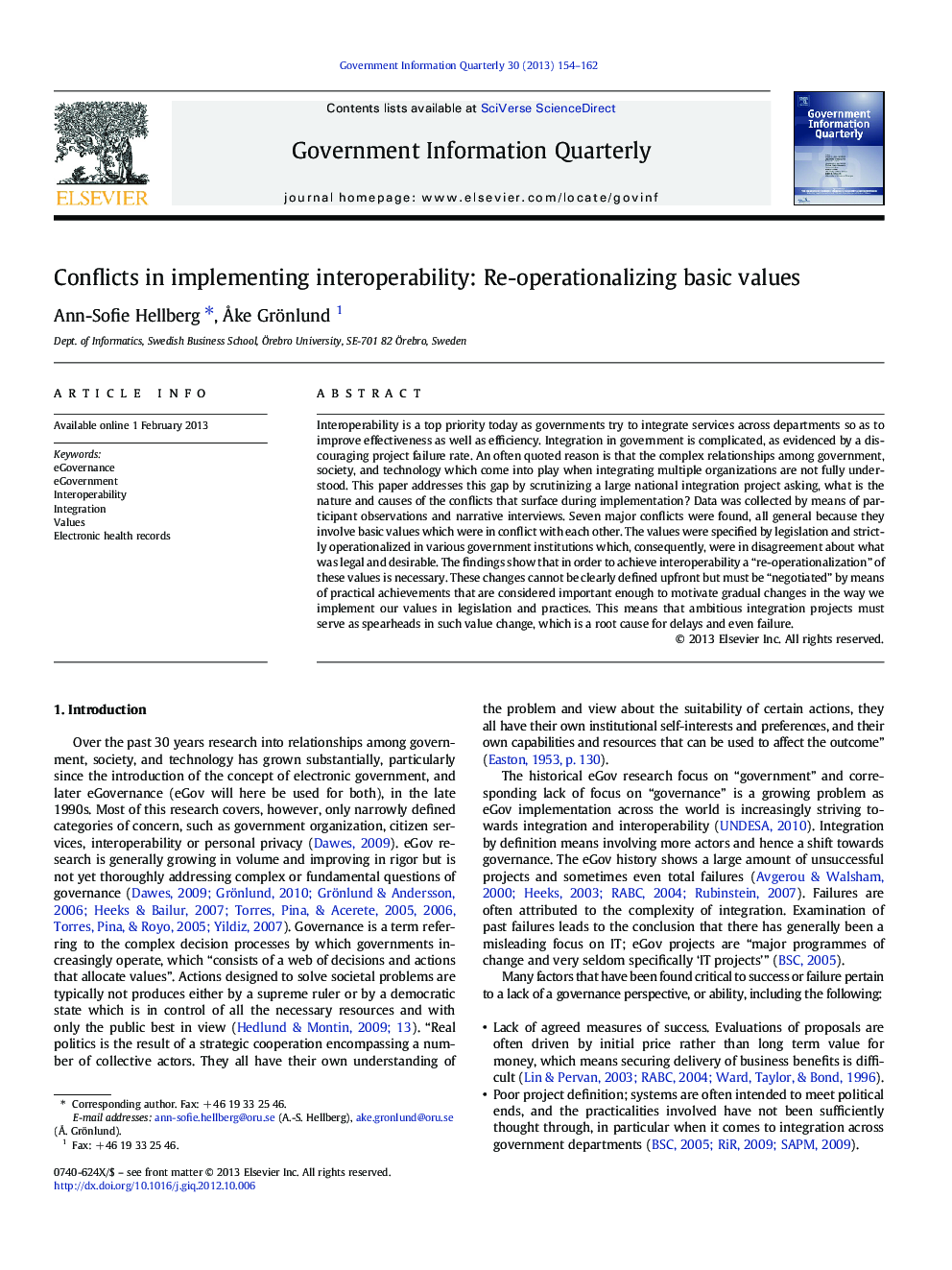| Article ID | Journal | Published Year | Pages | File Type |
|---|---|---|---|---|
| 1024477 | Government Information Quarterly | 2013 | 9 Pages |
Interoperability is a top priority today as governments try to integrate services across departments so as to improve effectiveness as well as efficiency. Integration in government is complicated, as evidenced by a discouraging project failure rate. An often quoted reason is that the complex relationships among government, society, and technology which come into play when integrating multiple organizations are not fully understood. This paper addresses this gap by scrutinizing a large national integration project asking, what is the nature and causes of the conflicts that surface during implementation? Data was collected by means of participant observations and narrative interviews. Seven major conflicts were found, all general because they involve basic values which were in conflict with each other. The values were specified by legislation and strictly operationalized in various government institutions which, consequently, were in disagreement about what was legal and desirable. The findings show that in order to achieve interoperability a “re-operationalization” of these values is necessary. These changes cannot be clearly defined upfront but must be “negotiated” by means of practical achievements that are considered important enough to motivate gradual changes in the way we implement our values in legislation and practices. This means that ambitious integration projects must serve as spearheads in such value change, which is a root cause for delays and even failure.
► We study a large integration project. ► We examine the nature of the conflicts that surface during implementation. ► Seven major value conflicts were found. ► To achieve interoperability a re-operationalization of these values is necessary. ► This re-operationalization can cause considerable delays or even failure.
